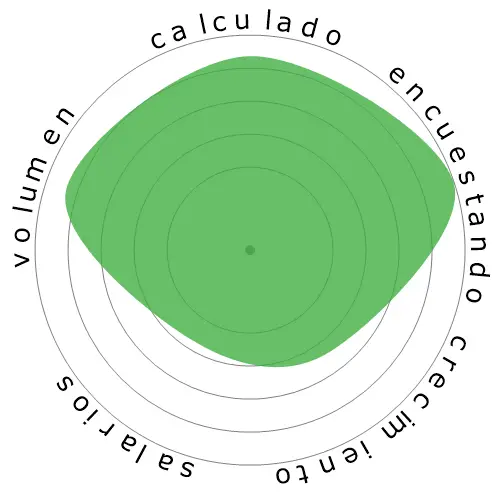Electricistas




Las personas también vieron
Riesgo de automatización calculado
Riesgo Mínimo (0-20%): Las ocupaciones en esta categoría tienen una baja probabilidad de ser automatizadas, ya que generalmente requieren solución compleja de problemas, creatividad, fuertes habilidades interpersonales y un alto grado de destreza manual. Estos trabajos a menudo implican movimientos de manos intrincados y coordinación precisa, lo que dificulta que las máquinas repliquen las tareas requeridas.
Más información sobre qué es esta puntuación y cómo se calcula está disponible aquí.
Encuesta de usuarios
Nuestros visitantes han votado que hay una baja probabilidad de que esta ocupación se automatice. Esta evaluación se ve respaldada por el nivel de riesgo de automatización calculado, que estima una posibilidad del 7% de automatización.
¿Cuál crees que es el riesgo de la automatización?
¿Cuál es la probabilidad de que Electricistas sea reemplazado por robots o inteligencia artificial en los próximos 20 años?
Sentimiento
El siguiente gráfico se incluye siempre que haya una cantidad sustancial de votos para generar datos significativos. Estas representaciones visuales muestran los resultados de las encuestas de usuarios a lo largo del tiempo, proporcionando una indicación importante de las tendencias de sentimiento.
Sentimiento a lo largo del tiempo (anualmente)
Crecimiento
Se espera que el número de ofertas de trabajo para 'Electricians' aumente 10,8% para 2033
Empleo total y estimaciones de vacantes laborales
Las proyecciones actualizadas se deben 09-2025.
Salarios
En 2023, el salario anual mediano para 'Electricians' fue de 61.590 $, o 29 $ por hora.
'Electricians' recibieron un salario 28,2% más alto que el salario medio nacional, que se situó en 48.060 $
Salarios a lo largo del tiempo
Volumen
A partir de 2023, había 712.580 personas empleadas como 'Electricians' dentro de los Estados Unidos.
Esto representa alrededor del 0,47% de la fuerza laboral empleada en todo el país.
Dicho de otra manera, alrededor de 1 de cada 213 personas están empleadas como 'Electricians'.
Descripción del trabajo
Instale, mantenga y repare el cableado eléctrico, equipos y accesorios. Asegúrese de que el trabajo esté de acuerdo con los códigos relevantes. Puede instalar o dar servicio a las luces de la calle, sistemas de intercomunicación o sistemas de control eléctrico.
SOC Code: 47-2111.00


Comentarios
Leave a comment
So, pleasing people is tough
https://www.yahoo.com/lifestyle/humanoid-robots-cleaning-house-serving-204050583.html
This will happen shortly.
Buildings are constructed in a way that are not standardized. Sure some facilities could be engineered in such a way that would make robotics possible to work in, but I think this is a long way off. By the time Electricians are automated most jobs will be automated. I mean robots/Ai could do basic level clerical work before electrical construction/maintenance. I think some parts of this industry will be automated. Maybe running 500 mile lines can be done by some machines, but even so there will still need to be some kind of human supervision.
We're just not there yet. We won't be there for a while. As dumb as most construction jobs seem, they will probably be automated so far out from now that entry level lawyers have more to worry about since chatgbt can probably do basic level legal research. No machine is capable of doing much aside from maybe doing some basic prep work, which that is hardly going to replace an electrician as of now.
If anything it will just speed up jobs and potentially lower the industry, but I really don't see it making a big difference anytime soon.
So I wouldn't worry just yet in regards to the immediate future.
The next 2 decades though, im not sure.
Reading comprehension went from not possible to human-level in a few years.
https://ourworldindata.org/uploads/2022/12/AI-performance_Dynabench-paper-2048x921.png
Deja una respuesta sobre esta ocupación